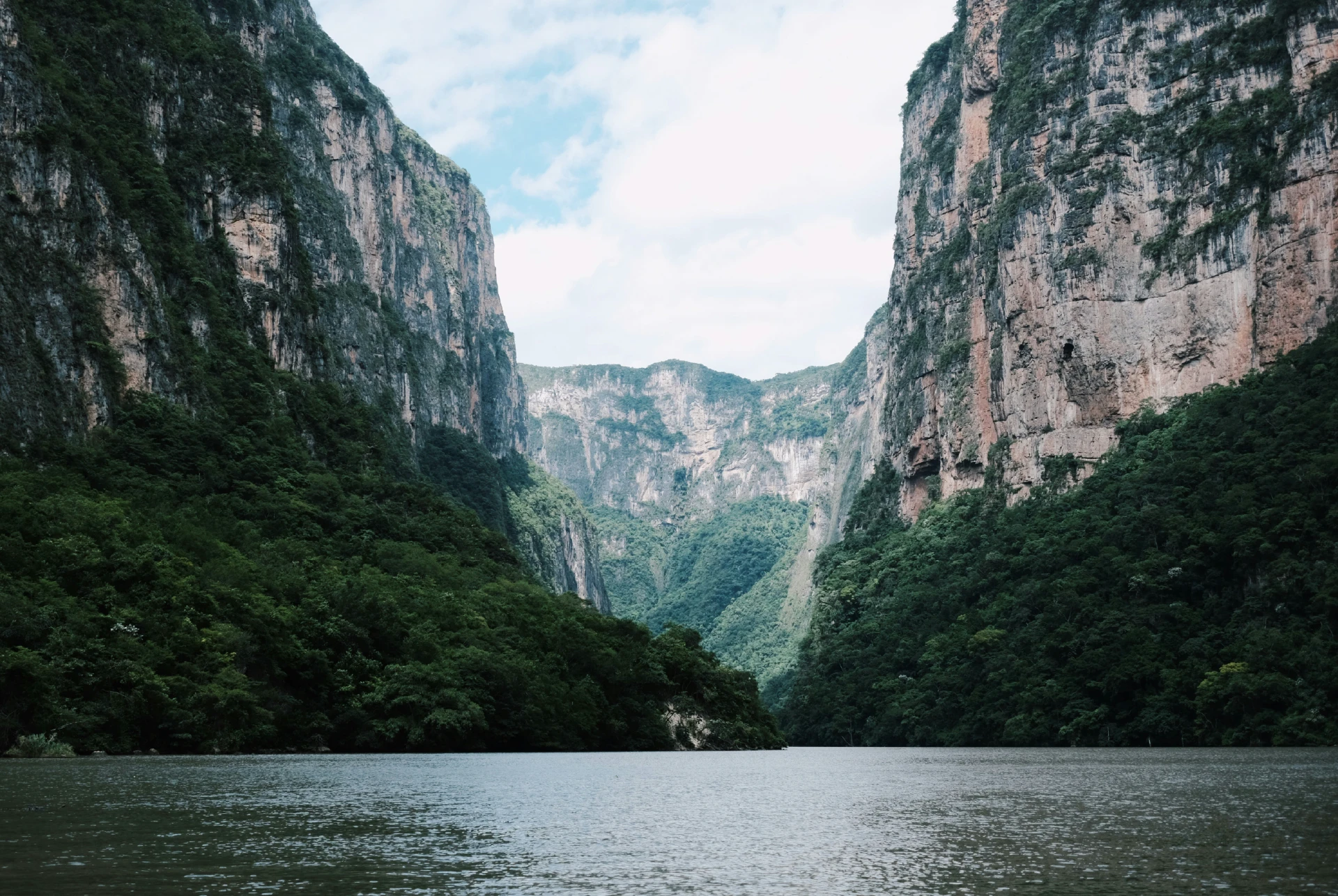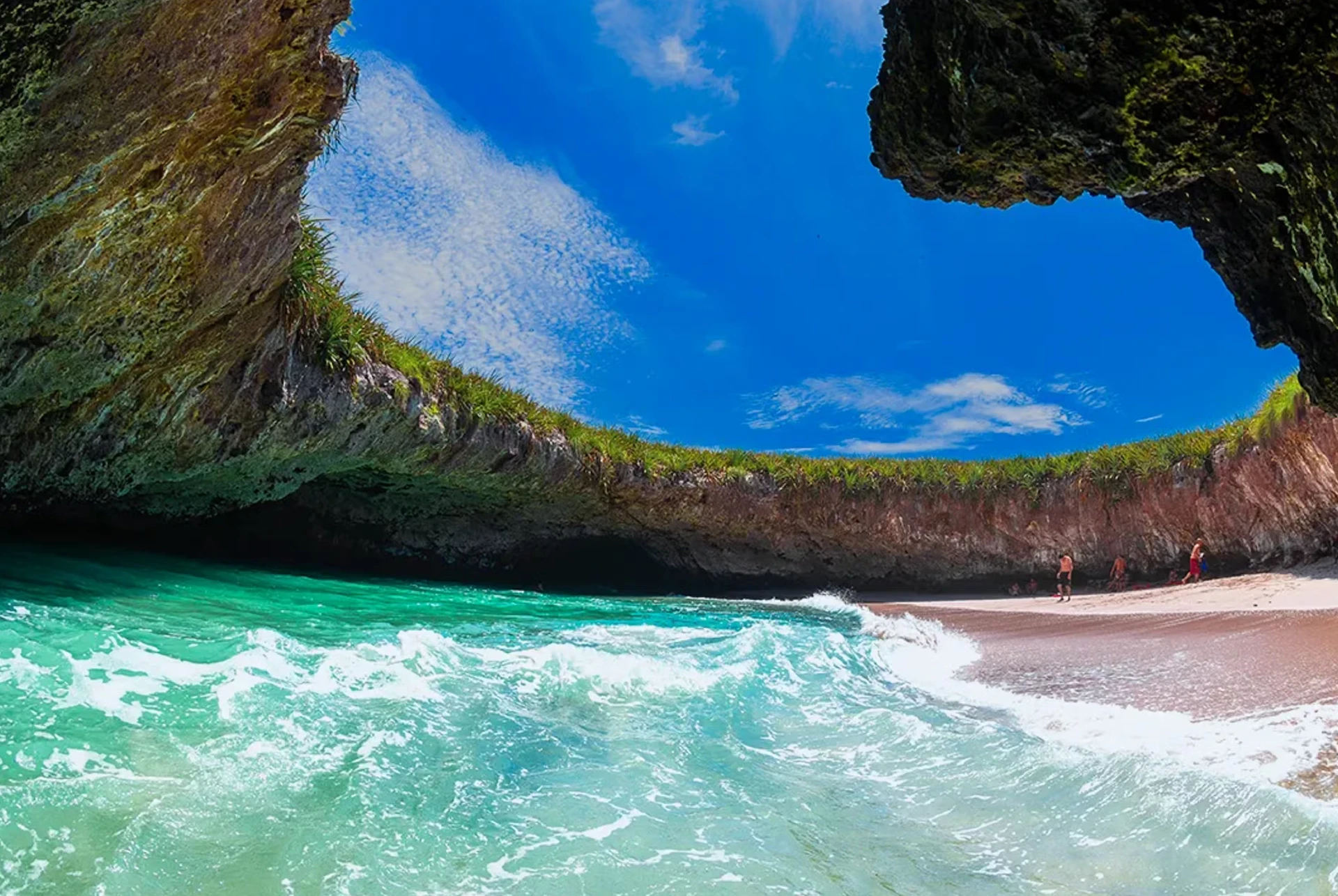
What is ecotourism and how does it contribute to the environment?
Characteristics of ecotourism
The characteristics of ecotourism are quite unique and go beyond simply visiting natural sites. These are some of the most outstanding:
- Sustainability: One of the pillars of ecotourism is caring for the environment. It seeks to minimize the impact that tourism can have on local ecosystems, promoting responsible practices, such as the efficient use of resources and the protection of flora and fauna. The idea is that both tourists and hosts can enjoy nature without harming it.
- Environmental education: Ecotourism is not only about seeing beautiful landscapes, but also about learning. Ecotourists have the opportunity to learn more about the biodiversity of the place, understand its importance to the balance of the planet and learn about the efforts being made to protect it. Educational activities about local cultures are also often offered, which enriches the experience.
- Cultural interaction: In this type of tourism, local communities are not just a backdrop, but an active part of the experience. Respect and appreciation for their traditions, customs and ways of life is promoted. This not only benefits tourists, but also helps communities to preserve and share their cultural heritage in a sustainable way.
- Small groups: To ensure a more intimate and respectful experience, activities are usually organized in small groups. This allows for a closer connection with both the natural environment and the local people, avoiding mass tourism that could affect the quality of the experience and the well-being of the community and the ecosystem.
In this way, ecotourism not only offers you the opportunity to enjoy the natural and cultural beauty, but also to actively contribute to its conservation and the well-being of local communities.

Advantages of ecotourism
Ecotourism brings with it a series of advantages that not only benefit those who practice this type of tourism, but also the natural environment and the communities that receive it. Here are some of the most important ones:
- Environmental conservation: One of the great advantages of ecotourism is that it helps protect local ecosystems. By generating income through tourism, it can finance the conservation of natural areas that might otherwise be threatened. This creates a virtuous circle where money from ecotourists is invested in keeping natural areas intact and in protecting the fauna and flora that inhabit them.
- Economic benefits for local communities: Ecotourism can also be a key source of income for communities that rely on more responsible tourism. By choosing ecotourism destinations, tourists directly support local populations, whether through hiring guides, purchasing artisanal products, or enjoying services and activities offered by local people. This creates sustainable economic opportunities, helping communities to thrive without compromising their natural resources.
- Enriching experiences: For tourists, ecotourism offers the possibility of living unique experiences in contact with nature. Activities such as hiking, bird watching or touring natural parks are not only fun and healthy, but also educational. In addition, you have the opportunity to get to know the local culture in an authentic way, participating in traditions and learning about ways of life that preserve the cultural heritage. All of this takes place in a natural environment that is not only beautiful, but also connects you in a profound way with the planet.
Examples of ecotourism activities
Hiking on trails surrounded by breathtaking scenery is one of the most common ecotourism experiences. National parks offer routes for all levels, from gentle forest hikes to challenging mountain ascents. Every step is an opportunity to enjoy the natural beauty, discover unique ecosystems and learn about local biodiversity.
Ecotourism is an opportunity to see animals and plants up close in their natural habitat. Whether spotting birds in flight, observing monkeys climbing trees or admiring a region's endemic plants, this type of activity is not only fascinating, but also educational. Learning about the local flora and fauna fosters greater respect for nature and awareness of the importance of its conservation.
Kayaking on calm waters of rivers or lakes surrounded by nature is a relaxing and exciting activity. From the water, you can see landscapes that would otherwise go unnoticed, and it is a perfect way to observe aquatic fauna and enjoy the serenity of natural environments. In addition, being a low-impact activity, it helps to minimize the ecological footprint.
Nature reserves are specially protected places that offer a deeper look at ecosystems that have not been altered by human intervention. Visiting one of these reserves is an enriching experience, where ecotourists can explore pristine landscapes, learn about conservation efforts and see how natural resources are preserved in their purest state.
Ecotourism is also an excellent way to immerse yourself in local cultures. Participating in workshops where locals teach their art, gastronomy or traditions is an enriching experience that not only allows you to learn about other ways of life, but also supports the local economy. These workshops encourage cultural exchange and provide a deeper understanding of the place you are visiting.

Principles of ecotourism
Ecotourism is based on a series of principles that seek to ensure that both the environment and the people benefit in a respectful and sustainable way. Here I explain them in more detail:
Minimize negative impacts on the environment and the community: Ecotourism promotes that, when visiting a place, we do not leave a footprint. This means taking care of the environment, not altering local ecosystems and, at the same time, respecting the communities that inhabit those spaces. It is a reminder that our passage through nature should be as light as possible, protecting everything that makes that place unique.
2. Foster environmental and cultural awareness and respect: Ecotourism is not only about enjoying beautiful scenery, but also about understanding and valuing local cultures and nature. It is about being aware of the environmental challenges facing the world and the customs, traditions and ways of life that have been part of a community for generations. Fostering respect for both is key to ensuring that both the environment and local cultures are preserved for the future.
3. Provide positive experiences for both visitors and hosts: Ecotourism seeks to provide an enriching experience for all involved. Visitors enjoy activities that teach them about nature and local cultures, while hosts have the opportunity to share their history, traditions and resources in a respectful way. It is a win-win relationship where everyone wins, from the tourist to the local community.
Generate direct financial benefits for conservation: A fundamental principle of ecotourism is that the money generated through tourism activities should contribute to the protection and conservation of the natural environment. In this way, resources from tourism are used to preserve biodiversity, maintain natural areas intact and finance projects that guarantee a more sustainable future.
5. Involve the local community in decision-making: Local communities are the true guardians of the site, so it is essential that they are an active part of decisions about the use of their resources. This not only ensures that their interests and needs are heard, but also empowers local inhabitants, allowing them to take a leading role in the protection and development of ecotourism in their region.
6. Raise awareness of the political, environmental and social context of the destination: Traveling with an open mind and an awareness of the issues facing a destination is vital. Ecotourism seeks to sensitize tourists to the political, social and environmental challenges affecting communities and the environment. In doing so, you not only enjoy the trip, but also become aware of the efforts being made to protect the place and its inhabitants.
7. Support universal human rights: Ecotourism is not only a way of traveling responsibly with nature, but also with people. This involves supporting and respecting the human rights of local communities, ensuring that their dignity and well-being are prioritized in all tourism activities. In doing so, ecotourism promotes an inclusive type of tourism that respects the equality and fundamental rights of all people.
Ecotourism destinations in Mexico
Mexico is an incredibly diverse place when it comes to ecotourism. From its unique biodiversity to its breathtaking landscapes, there are several destinations where nature and culture blend to offer unforgettable experiences. Here are some of the best places to practice ecotourism in our country:
- Sian Ka'an Biosphere Reserve: This is one of the most emblematic destinations for nature lovers. Located on the Mexican Caribbean coast, Sian Ka'an is a protected area that is home to an amazing diversity of species. From mangroves to coral reefs and tropical rainforests, it is a true haven for local wildlife. Here you can explore through canals by boat, go bird watching, or simply enjoy the peace that this protected site offers. In addition, being such a remote and well-kept place, the experiences are more authentic and connected to nature.
- Palenque National Park: If you are a fan of history and nature, this place is perfect. Not only does Palenque offer impressive Mayan ruins that look like something out of a movie, but it is also surrounded by the Chiapas jungle. You can tour the ancient structures of this Mayan city, which is a World Heritage Site, while immersing yourself in the sounds of the jungle. In addition to the ruins, the park is home to a wide variety of flora and fauna, such as jaguars, monkeys and tropical birds, making it a complete ecotourism destination.
- Islas Marietas: This is a place that really stands out for its marine biodiversity. The Marietas Islands, located off the coast of Nayarit, are known for their famous "Playa del Amor" or "Hidden Beach", a secret beach that is surrounded by cliffs and can only be accessed through a natural tunnel. In addition to the beaches, the area is perfect for watching dolphins, whales and a variety of seabirds. Snorkeling or kayaking here is an experience that connects directly with the ocean and its marine life.
- Sumidero Canyon: If you like breathtaking landscapes, this canyon in Chiapas will not disappoint you. The Sumidero Canyon is a majestic place where the vertical cliffs reach heights of up to 1,000 meters. You can explore the canyon aboard a boat, enjoying the views and the tranquility of the Grijalva River that runs through it. During the ride, you will have the opportunity to observe the local flora and fauna, including crocodiles, birds and howler monkeys, which makes the place even more spectacular.
Each of these destinations offers something unique, whether it is the richness of biodiversity, history or natural beauty. Practicing ecotourism in Mexico is a wonderful way to enjoy the best that the country has to offer, while contributing to the conservation of these wonderful places.




Conclusion on Ecotourism
Ecotourism is one of the best ways to travel, as it allows us to enjoy nature and local cultures in a responsible and conscious way. By choosing to be ecotourists, we are not only living unique and enriching experiences, but we also have the opportunity to contribute to the conservation of the environment and support local communities.
The important thing is that, as travelers, we are always aware of our impact and act in a way that benefits the place we are visiting. In this way, we promote a more ethical, sustainable and fair tourism, where everyone wins: us, the communities and the planet.




